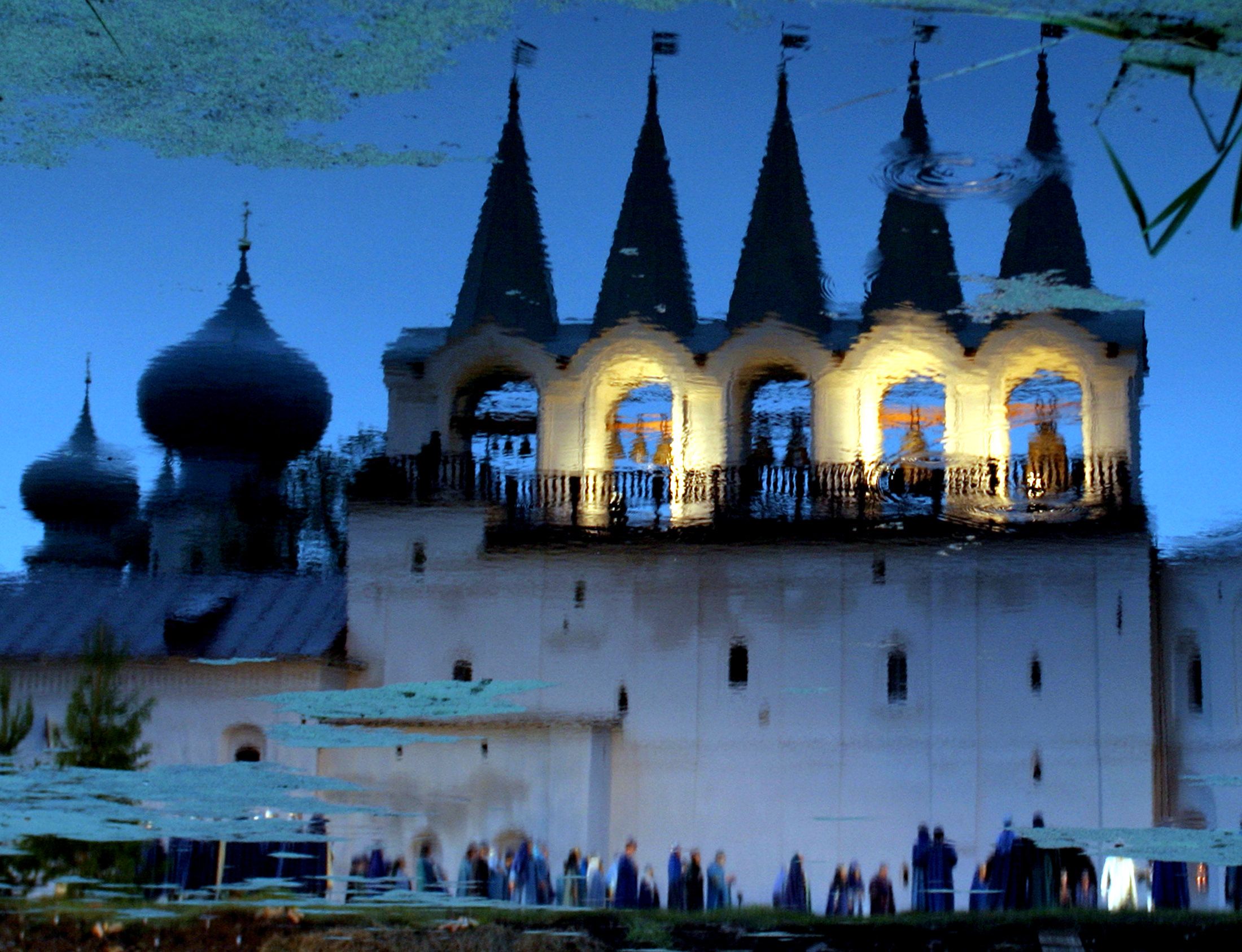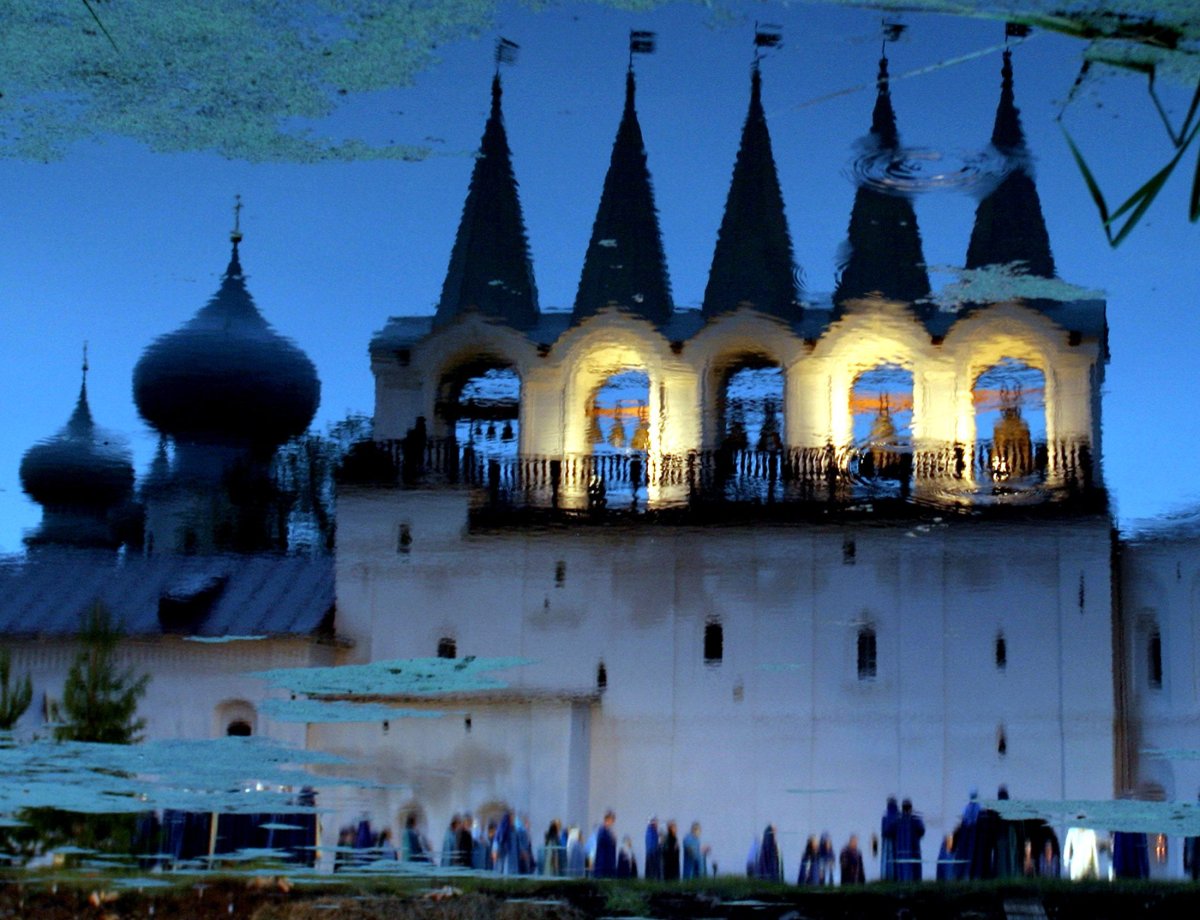
The State Department has released a report criticizing Moscow for allegedly neglecting shelters designated for victims of human trafficking and the homeless, but places one of these institutions in a mythical Russian city that, according to legend, has been underwater for centuries.
In a ceremony attended by the likes of Secretary of State Rex Tillerson and Ivanka Trump, senior advisor and daughter of President Donald Trump, the State Department released its annual "Trafficking in Persons Report" late last month. The 444-page document includes a number of countries listed in alphabetical order, detailing the department's findings on the trafficking situation in each nation. In the section dedicated to Russia, which the State Department ranks in the category of worst offenders, the Russian government is accused of not adequately protecting victims of human trafficking. The U.S. cites a number of examples of Russia's apparent neglect, including one that refers to a homeless shelter run by the Russian Orthodox Church in Kitezh.
Related: U.S. missiles deployed in Lithuania in face of Russia fears
"A homeless shelter run by the Russian Orthodox Church in Kitezh began accepting trafficking victims and offered them food and housing, though not medical or psychological care," the report read.
"The government did not provide financial support for the shelter," the State Department added.

Contrary to the department's claims, however, Kitezh only exists as a source of Russian folklore. The city, sometimes referred to as Russia's version of Atlantis, is said to have been founded by a Russian prince in the 13th century, but faced an existential threat from invading Mongol hordes, according to The Moscow Times. Rather than succumb to their attackers, legend has it that the citizens of Kitezh chose to plunge the city into nearby Lake Svetloyar, located in central Russia.
No conclusive archaeological evidence has been discovered to support the story, but the mythical city has been referenced in numerous works of pop culture. Perhaps most famously, it was the subject of famed Russian composer Nikolai Rimsky-Korsakov's 1907 opera "The Legend of the Invisible City of Kitezh and the Maiden Fevroniya." Kitezh was also featured in Western titles such as German filmmaker Werner Herzog's 1993 documentary "Bells from the Deep; Faith and Superstition in Russia" and action-adventure video game "Rise of the Tomb Raider," developed by Crystal Dynamics and published by Square Enix in 2013.
According to US @StateDept report, Russian authorities are not supporting shelters in Kitezh aka mythical Russian Atlantis... #RussiansDidIt pic.twitter.com/7P5SOu0pCo
— Russia in RSA 🇷🇺 (@EmbassyofRussia) July 10, 2017
The Moscow Times and other Russian media outlets pointed out that the State Department likely confused the name of the actual Kitezh Shelter for Victims of Domestic Violence, located in the southeastern outskirts of Moscow, with a separate village or city. The Kitezh shelter, which describes itself as an NGO supported by the Novospassky Monastery, has been the subject of various reports, including an article by The Independent in 2015 and a 2016 presentation posted by the Penn State's Presidential Leadership Academy, which called Kitezh "an invaluable resource for women" that did indeed provide psychological assistance.
In addition to accusations made in the report, Secretary of State Rex Tillerson specifically named Russia as a nation that exploits forced labor, specifically from North Korea, when first speaking on the document last month. Since 2013, the U.S. has categorized Russia in the lowest possible "Tier 3" in terms of fighting human trafficking, meaning its one of 23 "countries whose governments do not fully meet the minimum standards and are not making significant efforts to do so." Other third-tier nations include China, Iran, North Korea and Syria. The U.S. ranks itself in "Tier 1."
Uncommon Knowledge
Newsweek is committed to challenging conventional wisdom and finding connections in the search for common ground.
Newsweek is committed to challenging conventional wisdom and finding connections in the search for common ground.
About the writer
Based in his hometown of Staten Island, New York City, Tom O'Connor is an award-winning Senior Writer of Foreign Policy ... Read more
To read how Newsweek uses AI as a newsroom tool, Click here.








